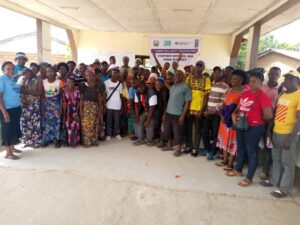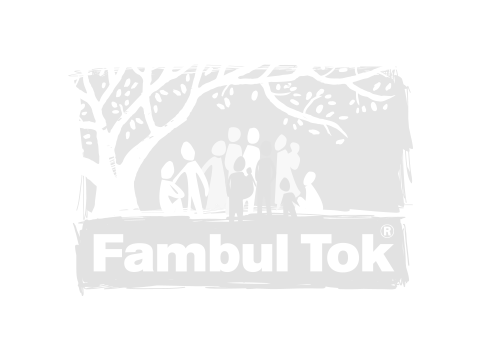Fambul Tok facilitated a well-attended Stakeholders meeting for Soa Chiefdom at Kankorkidu, in Kono district.
Participants include Chiefdom Speaker, Chiefdom Administrative clerk, section chiefs, Mammy Queens and Youth Leaders of the various sections, as well as representatives of Peace Mothers and GRC groups, the security sector and a host of others. Participants raised the following Key issues:
– Concern over failed arrangements with a mining company and members of Deyor community in the Sawabuma section for water supply. The company mining in the Songia River which is boundary with Gbane (Deyor community in Sawabuma section) is being used for min

Soa Chiefdom Stakeholders
ing with a promise to provide boreholes but the company has reneged on their commitment. There is a growing dissatisfaction among the community members and stakeholders fear negative reactions might undermine community peace and stability.
– Also reported were issues of political intolerance, marginalization of women and neglect of the welfare of people whose homes and properties were destroyed during the last violence between Nyandeyama and Taama communities over agricultural lands. Action points agreed on include:
– Engagement with the mining company by chiefdom Leaders
– Continued community sensitization
– Mediation by trained community structures set up by Fambul Tok
This stakeholders meeting is part of the “Strengthening Human Security in in the Remote Chiefdoms of Gbense, Soa, and Kamara in Kono District of Sierra Leone” funded by UNDP.
This joint programme (JP) uses the Human Security Approach to address development challenges and vulnerabilities in three chiefdom areas of Kono District of Sierra Leone. It will accelerate Sustainable Development Goals (SDG) implementation, while increasing ownership of the goals in the local community. Through a people-centred, context-specific framework, this programme will advance the livelihood and dignity of people in the community, particularly those who are most vulnerable

